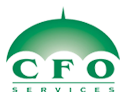The year 2020 was an immensely challenging one for business startups, but for Irish entrepreneurs, it was also a chance to show just how resilient and innovative they can be.
Despite having to overcome issues such as remote working and lockdowns, many new startups found opportunity within the Covid-19 crisis, either by pivoting their business or finding solutions to problems faced by people and countries dealing with the pandemic.
To support their level of bravery and true global ambition, Enterprise Ireland approved more than €48m in funding for new high-potential startup companies (HPSUs) and Covid-19 impacted HPSUs. This figure was approximately twice the level of funding usually approved annually, reflecting the Government’s commitment to the startup sector even during challenging times.
This contributed to Enterprise Ireland’s ranking as the leading venture capital investor globally in 2020 from Pitchbook. In 2020, Enterprise Ireland partnered with 125 founding teams, supporting 80 companies through its HPSU fund and 45 through its Competitive Start Fund (CSF) programme. Projects supported in 2020 were diverse and included new gene therapy technologies, cyber assessment tools, on-site parasite testing kits for livestock, innovative talent management tools and intelligent robots for agritech.
A total of 12 companies emerged from third level institutions, with a particular emphasis on life sciences and industrial technologies. The projects covered by these companies included the early detection of sepsis, new machine learning tools with application in media and digital solutions for drug development — all of which have the potential to become major global innovations.
Almost 24pc of the 80 new HPSUs supported by Enterprise Ireland are led by female entrepreneurs. In addition, 42pc of the Competitive Start Fund projects awarded last year were led by female founders in sectors as diverse as climate change, fintech and edtech. The regional split of new startups was also positive, with a 50-50 split between new projects based in and outside Dublin in 2020. This reflects higher numbers in the west than in 2019, and a more than doubling in the south.
The achievements of these startups were celebrated at this year’s Startup Showcase, which took place virtually on February 24 with An Taoiseach Michéal Martin and Tánaiste Leo Varadkar. Participants included the HPSU and the Competitive Start Fund companies, a representative from each of the 13 New Frontiers programmes supported by Enterprise Ireland and stakeholders and partners across the startup ecosystem .
Finding opportunity in a challenging year
The figures are impressive in any year, but in 2020, they were nothing short of inspirational. Startups faced unprecedented challenges yet many found the opportunity during the pandemic and kept their teams together by sheer determination and hard work. Funding also proved difficult, with some investors seeking to shore up existing investments rather than invest in new projects.
In response, Enterprise Ireland accelerated startup supports for promising businesses, investing earlier in promising projects and investing more alongside co-funders. It also launched the Sustainable Enterprise Fund for HPSUs, which allowed for express equity injections into Covid-19 impacted EI projects, alongside grant funding. Over 110 companies availed of this fund.
This commitment by Enterprise Ireland to ambitious Irish startups with export potential has accelerated as we navigate through the pandemic and prepare for the post-Covid world in 2021.
The first CSF call of 2021 is open until March 2 for applications from startups that have the capacity and ambition to succeed in global markets; this year they are particularly encouraging applications from eligible companies that address the challenges and opportunities relating to climate change and accelerating digitisation. In addition, the HPSU team maintains strong links with Local Enterprise Offices (LEOs) and the New Frontiers programme to recognise new companies with great ideas as they emerge.
Irish Independent, 28 February 2021

